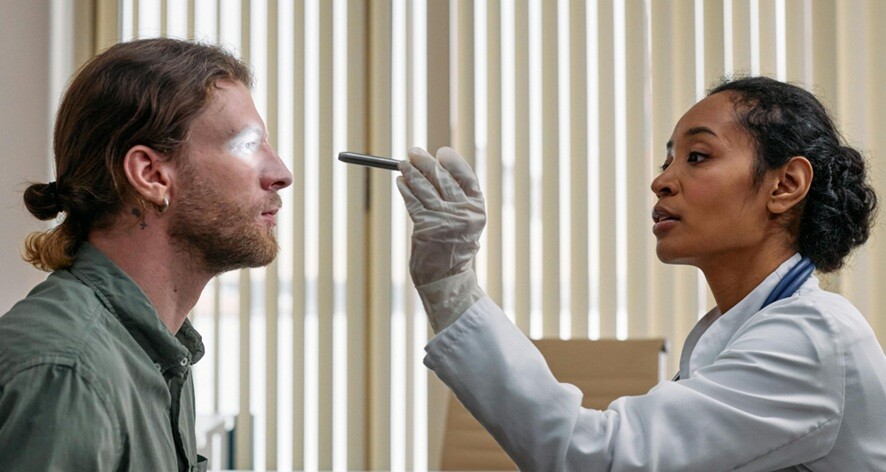Your eyes do a lot for you every day. However, sometimes they show red flags that something is off. It’s easy to overlook small changes or discomfort. However, these early signs of eye disease can tell you a lot about possible eye problems. Promptly catching these signs helps prevent more serious issues down the line.
Ten Early Signs of Eye Problems
If your eyes start feeling or looking different, don’t brush it off. Even small symptoms can point to something important. Here are ten signs that could mean your eyes need a closer look.
Abrupt Blurriness or Distortion of Vision
You should be alert if your eyesight suddenly becomes blurry or appears distorted. This may occur due to other eye disorders or if astigmatism worsens. Having blurry vision can make it difficult to see details properly, which can interfere with daily activities like reading and driving. It’s wise to consult an eye specialist if you observe this.
Light Flashes or Additional Floaters
Occasionally, you may notice small dots or shapes that resemble cobwebs floating in your field of view. Known as floaters, these are typically innocuous. However, if you notice a rapid increase in floaters or light flashes, it may indicate a retinal issue. This may require immediate medical attention. Don’t disregard it.
Sensitivity to Light
If bright lights start to bother you more than usual, that’s called photophobia. It can happen for many reasons, such as infections or eye strain. This is definitely an early sign of eye damage. It means your eyes are irritated or inflamed.
Too Much Tears or Dry Eyes
Your eyes need the right amount of moisture to stay healthy. Sometimes, they produce too many tears, making your eyes watery most of the time. Other times, your eyes might feel dry, itchy, or gritty. Both can be uncomfortable and point to issues like dry eye syndrome or blocked tear ducts.
Trouble Seeing at Night
You may have night blindness if you have trouble seeing in low light or the dark. This may result from vitamin A deficiency or cataracts. It makes it dangerous and difficult to walk in low light or drive at night. It’s time to check if your night vision is becoming worse.
Diminished Side Vision
Have you noticed that objects on the outskirts of your field of vision are absent? This condition is known as tunnel vision. It might be a precursor to glaucoma, a condition that harms the nerve that connects your eye to your brain. Consult a doctor right away if you are losing side vision because glaucoma typically doesn’t cause any pain in the beginning.
Colors Look Different
If colors seem dull or just “off,” your eyes might be telling you something. Changes in how you see colors can come from cataracts or retinal problems. While it might not seem serious at first, it can affect your daily life and should be checked out.
Red or Bloodshot Eyes
Red eyes happen for many reasons, including tiredness, allergies, or even infections. But if redness sticks around, feels painful, or comes with discharge, it can be one of the early signs of eye infection like conjunctivitis or inflammation. Don’t ignore persistent red eyes.
Eye Fatigue or Strain
It’s common to have eye fatigue after working or using a screen. However, you may be overstressing your eyes if they pain or become blurry frequently. This can indicate that you need to update your glasses, adjust the way you work, or rest your eyes. Persistent tired eyes can indicate eye strain or underlying vision issues, so monitoring symptoms and taking preventive measures is usually important.
Vision-Related Headaches
Your eyes may be working too hard if you have frequent headaches and vision issues. Perhaps your medication is incorrect, or you are concentrating for too long without taking breaks. If headaches cause discomfort or clouded vision, pay heed.
Why These Signs Matter?
Many eye conditions start slowly and without pain. By the time they cause big problems, it can be harder to fix them. What can you do? For starters, understand that regular eye exams catch issues early. The treatment is easier and more effective at the beginning of any eye problem.
Also, watching out for these early signs of eye disease helps you take care of them before problems get worse. Your eyes are precious! So, if you notice any of these signs, don’t wait. Seeing an eye doctor can protect your sight and keep your eyes healthy for years.
You may also like to read,







